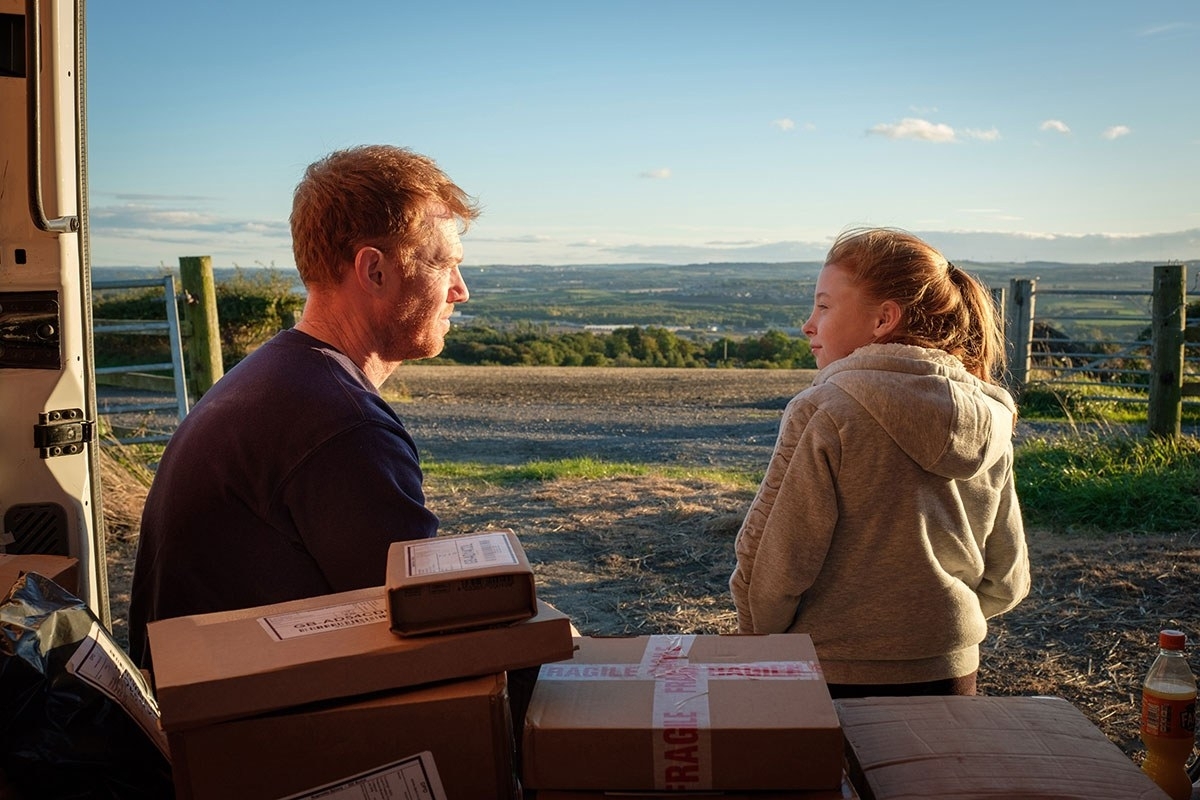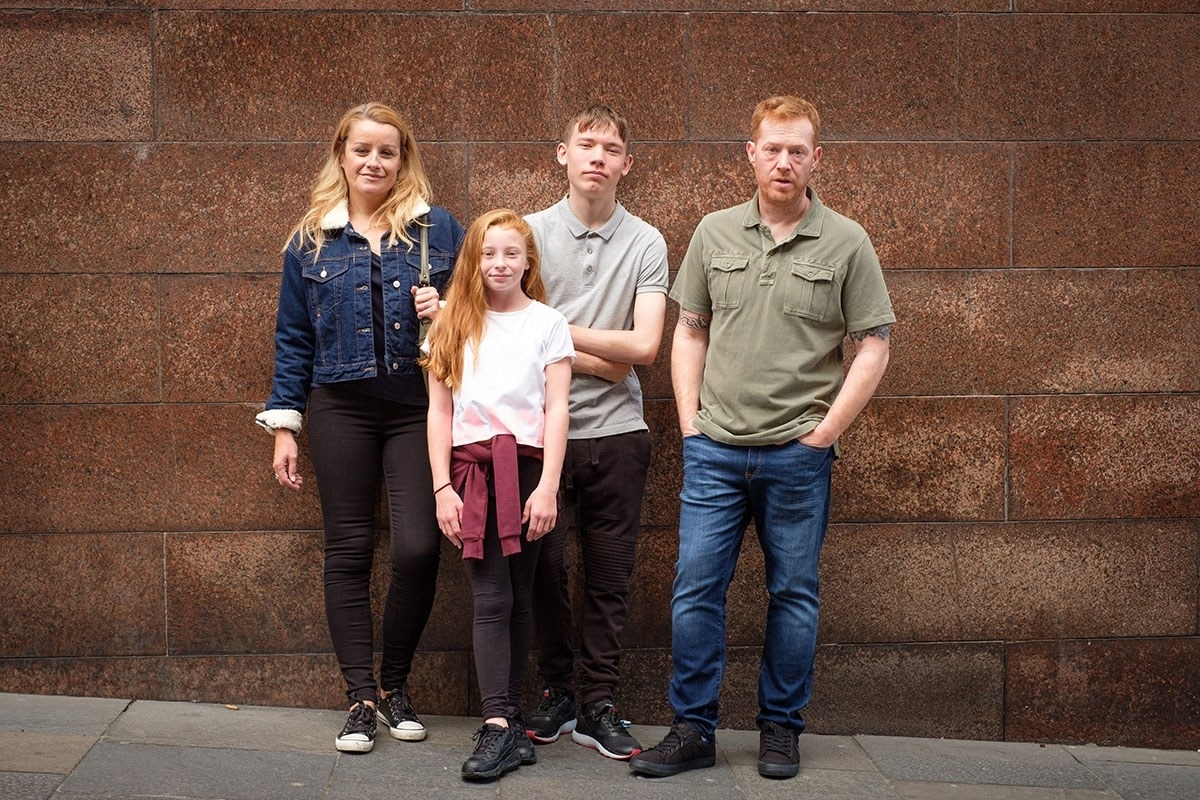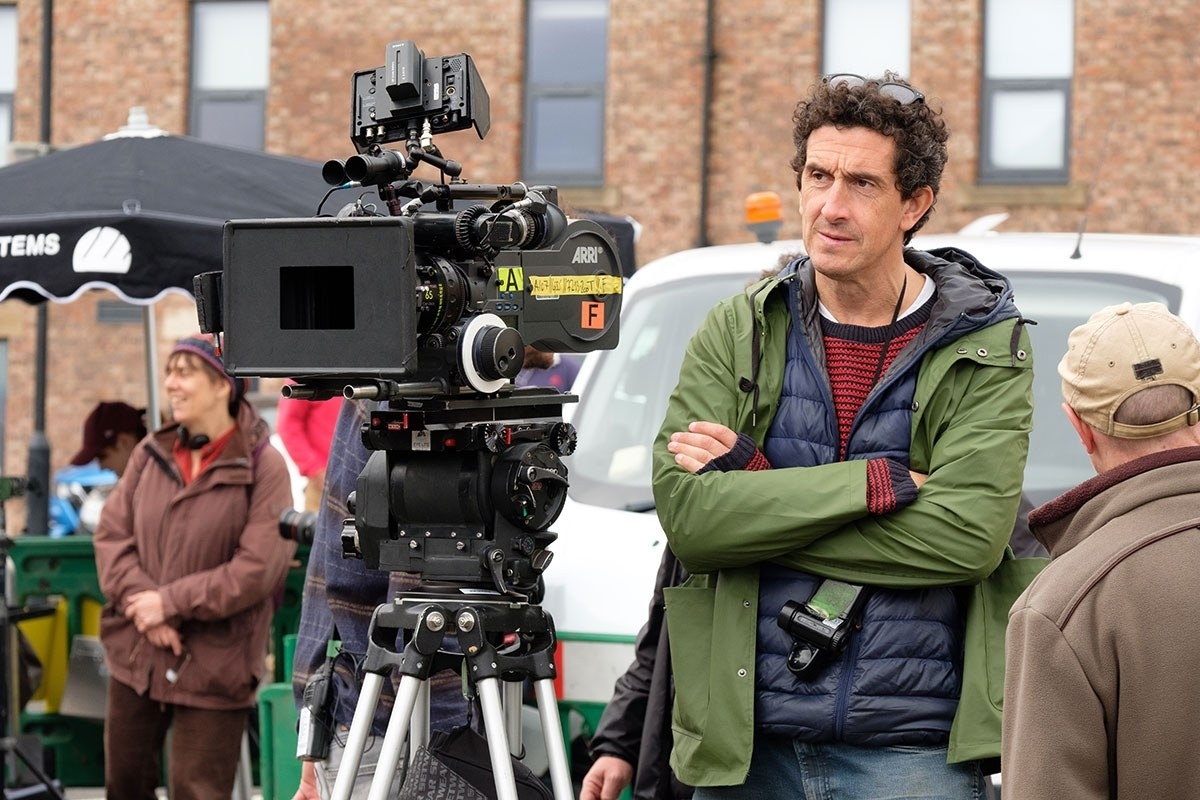Director Ken Loach harnesses Kodak S16mm for his stirring, UK service-economy drama 'Sorry We Missed You'

Kris Hitchin stars as Ricky, with Katie Proctor as Liza Jane, in Ken Loach’s "Sorry We Missed You." Image copyright: Sixteen Films 2019. Photograph by Joss Barratt.
For over 50 years, director Ken Loach has continued to bring realistic portrayals of contemporary social and political situations to the big screen. And, all of his 27 feature film productions have used celluloid film.
His most recent production, Sorry We Missed You, captured on Kodak S16mm and highly-praised after its In-Competition screening at the 2019 Cannes Film Festival, sees the acclaimed director tackle the challenges of the modern work/life balance on a tight-knit nuclear family.
“I have never felt tempted to deviate into the digital world,” says Loach. “Film has a different quality altogether. I find it has more depth; it’s more lustrous and more nuanced. There’s a certain frailty too – you don’t have the universally-sharp detail in every frame that you get with digital. Hence, the celluloid image can also be more ambiguous, enigmatic and intriguing. Quite simply, film is a better medium for storytelling.”

During production on "Sorry We Missed You." Standing (l-R): clapper/loader Thibault Walckiers; focus puller Andrew O’Reilly; DP Robbie Ryan BSC ISC; director Ken Loach; and script supervisor Susanna Lenton. Seated: Debbie Honeywood (Abby), Kris Hitchin (Ricky). Image copyright: Sixteen Films 2019. Photograph by Joss Barratt.
Shot in Loach’s trademark naturalistic style, Sorry We Missed You follows Ricky, Abby and their two children, who live in Newcastle. They are a strong, working-class family, who care for one another, but have been fighting an uphill struggle against debt since the 2008 financial crash. To make ends meet, Ricky has skipped from one labouring job to another whilst Abby, who loves her work, cares for old people. Despite working longer and harder they realise they will never have independence, nor own their own home.
So it's now-or-never when the ‘app revolution’ presents Ricky with a golden opportunity to wrestle back some independence. Abby sells her car so that Ricky can buy a shiny new van and become a self-employed delivery driver, with his own business. But, the modern world on zero-hour contracts impinges on these four souls in the privacy of their kitchen, and things soon come to breaking point.
Written by Paul Laverty and produced by Rebecca O'Brien, Sorry We Missed You was made by Sixteen Films/Why Not Productions, with support from the BFI and BBC Films, in co-production with Les Films du Fleuve, based in Liège, Belgium.

The main cast of Ken Loach’s "Sorry We Missed You" – (l-r) Debbie Honeywood (Abby), Katie Proctor (Liza Jane), Rhys Stone (Seb), Kris Hitchin (Ricky). Image copyright: Sixteen Films 2019. Photograph by Joss Barratt.
As with many of Loach’s productions, Sorry We Missed You casts both professional and non-professional actors. Kris Hitchen, who previously had a minor role in Loach’s 2001 film, The Navigators (2001) plays Ricky, along with newcomers Debbie Honeywood as Abby, plus Katie Proctor and Rhys Stone as the children.
Sorry We Missed You was shot by Oscar-nominated cinematographer Robbie Ryan BSC ISC (The Favourite). It represents Ryan’s fourth feature collaboration with Loach, following the 35mm-originated productions of The Angel’s Share (2012), which won the Cannes Jury Prize, Jimmy’s Hall (2014) and the BAFTA and Cannes Palme d’Or winning I, Daniel Blake (2016).

DP Robbie Ryan BSC ISC and with director Ken Loach on the set of "Sorry We Missed You." Image copyright: Sixteen Films 2019. Photograph by Joss Barratt.
“Robbie is a talented cameraman, who has a great appreciation of layers of light and composition using film,” says Loach. “He also brings a positive energy and buoyancy to the set, which is great for the actors, especially those who are not so experienced, as well as the crew. That contribution to the collective enjoyment during production is as important as anything.”
Principal photography took place over the course of 30 shooting days, from September to October 2018, at locations in the Newcastle area of north-east England, the same city that Loach had set I, Daniel Blake.
“I was honoured to get the shout from Ken to shoot Sorry We Missed You, and to work with the same, great supportive production team, in the same great city of Newcastle,” says Ryan, whose other 16mm/35mm celluloid credits include Andrea Arnold’s Fish Tank (2009) and Wuthering Heights (2011), Noah Baumbach’s The Meyerowitz Stories (2017), and Yorgos Lanthimos’ The Favourite (2018).
“Ken knows what he wants to do, and how to achieve it,” Ryan notes. “He is always fabulously well-prepared, especially in knowing the locations and the direction of the sun for natural backlight, and where he wants the camera to observe the action. It’s an honest, simple, straightforward and unique style, that is very effective and timeless too.”
Ryan selected ARRI 416 16mm cameras fitted with Ultra Prime lenses, typically using shorter focal lengths and framing in handheld mode for the many driving sequences, whilst using slightly longer primes on a tripod or dolly-mounted camera for the rest of the production.
“I have been fortunate to have shot a lot of films on film over the last 10 years, and I love shooting on 16mm,” Ryan remarks. “Physically, it's a versatile format and great for tight locations and environments. We had to film a considerable amount of the production handheld in Ricky’s van, so the small size of the camera certainly helped in that respect.” Camera and lenses were supplied by Eye Lite in Brussels.
Ryan operated the camera during the shoot, assisted by 1st AC Andrew O’Reilly, and 2nd AC Thibault Walckiers. Liam Iandoli and Sarah Cunningham variously operated B-camera, when an additional camera was required for coverage of such scenes as the parcel delivery depot that Ricky frequents. The production gaffer was Laurent Van Eijs.

DP Robbie Ryan BSC ISC on the set of "Sorry We Missed You," with producer Rebecca O'Brien, and writer Paul Laverty (in the hat) in the background. Image copyright: Sixteen Films 2019. Photograph by Joss Barratt.
Being highly-aware of Loach’s preference for shooting in available light, and a naturalistic-looking result, Ryan selected Kodak Vision 3 500T (5219) for the production’s night-time exterior/interior sequences, with a combination of Kodak Vision 3 200T (5213) and Kodak Vision 3 250D (5207) for day interiors/exterior scenes. Film processing was done at De Jonge lab.
“Film always looks great, straight out of the can,” says Ryan. “Unlike digital, where you have to create a ‘filmic look’, through such things as lighting, exposure and LUTs, the default setting of film is a ‘filmic look’. The way film handles highlights, and balances colour and contrast, is beautiful. Also, the innate texture and grain of 16mm has a unique character, which you just don’t get with digital. To my mind, 16mm delivers a more honest image, and you can certainly feel it in the human family drama in Sorry We Missed You.”
The aesthetic qualities aside, Loach believes that shooting on celluloid offers other advantages.
“Film requires discipline,” he says, “you have to carefully consider what you want to shoot and then be precise in how you do it – all based around the length of film you have in the magazine. I think you do better work because of that.
“Filmmaking is an intuitive process and privacy is essential. The idea having monitors on-set and lots of other eyes seeing what you are doing, fills me with horror. It can make the actors feel vulnerable too, if other people scrutinise every little thing they are doing.
“So I keep production like it was in the days before the ubiquitous monitor: just the film camera, the operator, focus puller, boom swinger, continuity and me. No HD taps either, heaven forfend. Anything that opens the process up beyond that makes filmmaking less personal, more blatant to everyone.”
When asked about advice he might give to anyone else considering shooting on film Loach remarks, “Just see the difference in the quality of the filmed image. It adds so much more to your storytelling than you could ever imagine.”